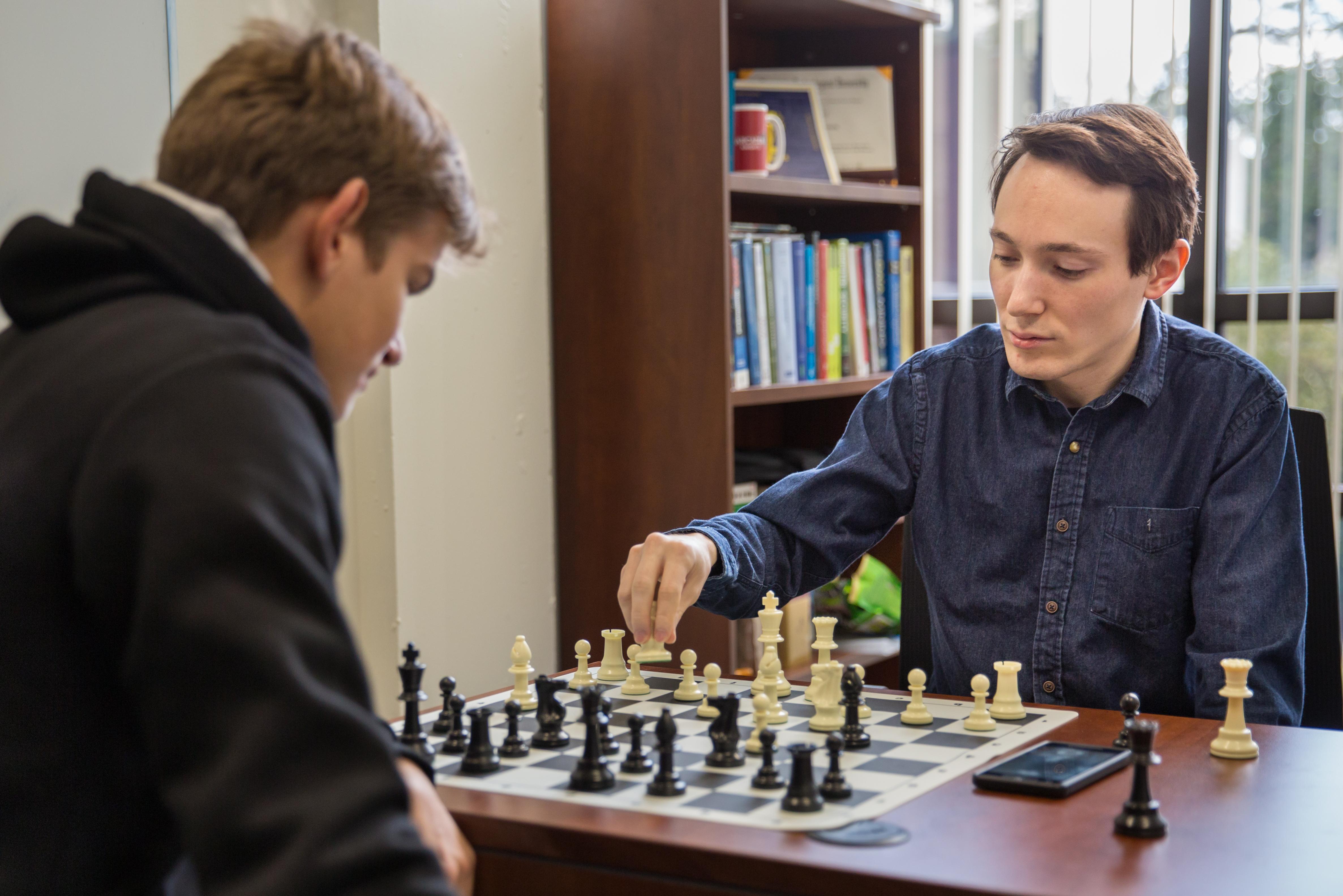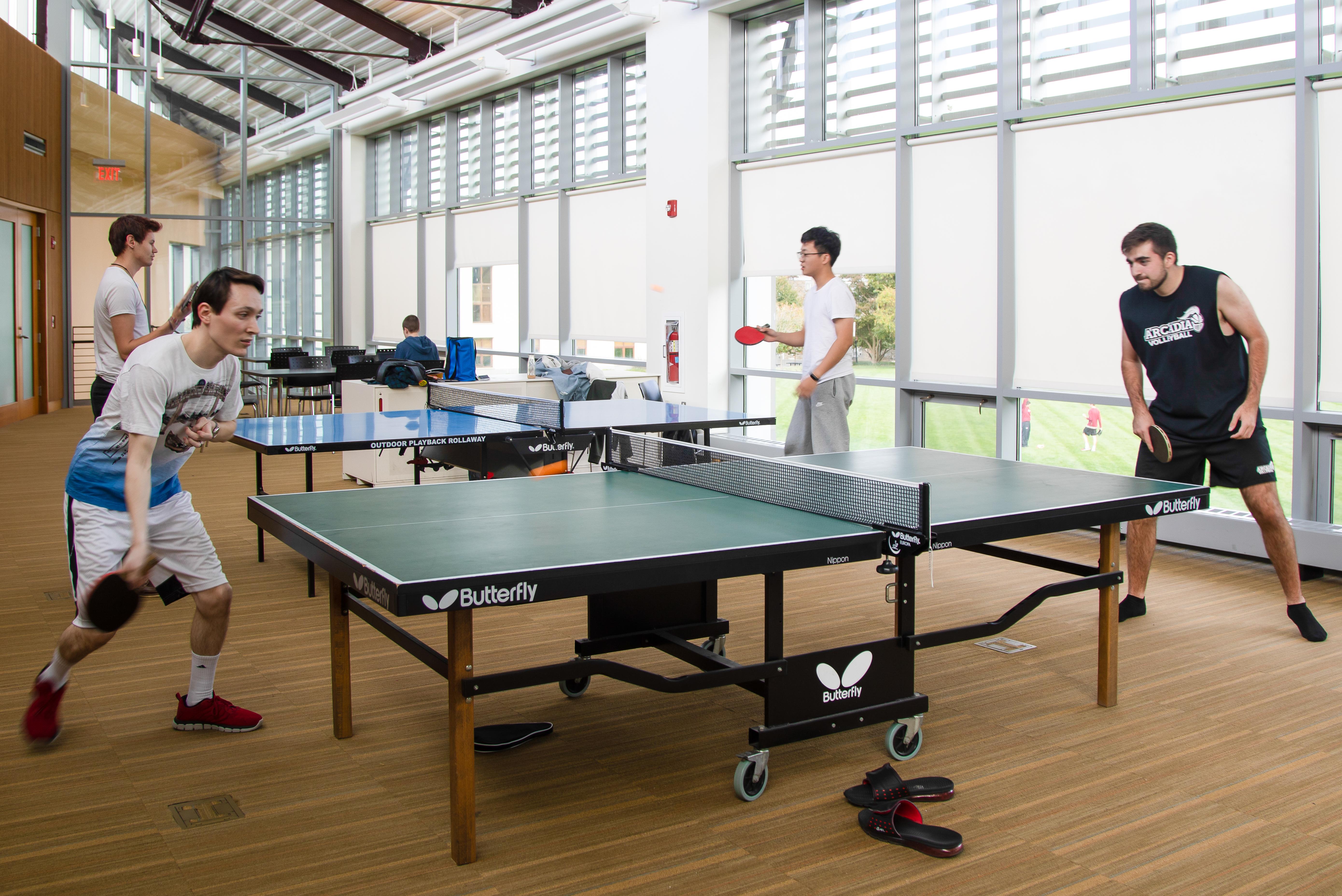Dr. Ford Mentors Tomorrow’s Tech Leaders
Dr. Vitaly Ford
Assistant Professor of Computer Science and Mathematics
Courses: Computer Organization and Architecture, Data Structures and Algorithms, Operating Systems, Introduction to Practical Security Assessment, and Network Security
Expertise: Cybersecurity
Advice for Students: Be persistent, learn something new every day, and stay informed. The cybersecurity field will continue to grow exponentially over the next decade and beyond.
“We no longer just think about how to create innovative industry approaches to technology; we think about how to make them secure by design.”
– Dr. Vitaly Ford

Authentication. Cyphers. Encryption.
These tech industry buzzwords may seem elusive to some, yet they have a direct impact on everyone who uses digital devices at home and in the workplace.
Dr. Vitaly Ford considers cybersecurity his passion, one that evolved from a love of teaching. At Arcadia, his students explore current theories and best practices across the information technology landscape. While developing core skills, they investigate new defensive and offensive security methods to prevent malware attacks, expose infrastructure vulnerabilities, uncover phishing campaigns, enhance online safety measures, and uphold industry ethics.
Dr. Ford grew up east of the Ural Mountains in post-Soviet Yekaterinburg, Russia’s fourth-largest city. After graduating from Ural Federal University in 2012, he traveled nearly 6,000 miles to begin post-graduate work in Cookeville, Tenn. Within five years, Dr. Ford made history as the first Ph.D. candidate to earn a doctorate in Computer Science at Tennessee Tech.
During his time at Tennessee Tech, Dr. Ford created GenCyberCoin Incentive System, a web platform for middle and high school students to explore cryptocurrency, social engineering, bug bounty, and web security. In 2017, he launched the dynamic project at the GenCyber summer camp program hosted by his alma mater. With additional grant funding from the National Science Foundation (NSF) and the National Security Agency (NSA), Dr. Ford plans to extend the project into more than 160 universities and high schools nationwide, inspiring the next generation of high-tech innovators and visionary engineers.
When Dr. Ford joined the Arcadia community in the summer of 2017, he brought his cybersecurity expertise to the University’s distinctive roster. He explained how the Computer Science Program at Arcadia offers students a unique combination of disciplines and hands-on learning experiences.
“There are many opportunities for faculty-student research in cybersecurity, data mining, and mobile development,” Dr. Ford said. “We also sponsor student fees for competitions and conferences, and offer top-ranked study abroad programs for Computer Science majors, which many don’t realize can be applied to their credit hours.”
Dr. Ford is committed to innovative approaches, professional development, and diversity. He provides guidance and mentorship as director of chapter development at the National Cybersecurity Student Association, a one-stop-shop to enhance cybersecurity education through activities, networking, and collaboration. Dr. Ford also serves as a student chapter coordinator for Women in Cybersecurity, an organization dedicated to the encouragement and support for women in the field that hosts an annual conference for cybersecurity students and professionals in academia, industry, research, and government to share ideas and network with peers.
This semester, Dr. Ford and his students are investigating how artificial intelligence can be programmed to mimic biological neural networks and perform more human-like behaviors related to cognition.
“I always challenge my students to get comfortable with getting uncomfortable and interface with these new technologies,” said Dr. Ford. “Change makes innovation possible.”

Dr. Ford’s challenges extend beyond Boyer Hall. Every Friday at 4 p.m., the undefeated table tennis champion meets students for a Ping Pong marathon in the Commons.
“So far, I haven’t found anyone who can beat me,” Dr. Ford said. “I’m putting the challenge out there to the University community for some competition and a good game.”
There is an additional opportunity for a friendly match with Dr. Ford on campus. All Arcadia Knights, especially those seeking a skilled chess opponent, are invited to test their endgame strategies in Boyer 328.

